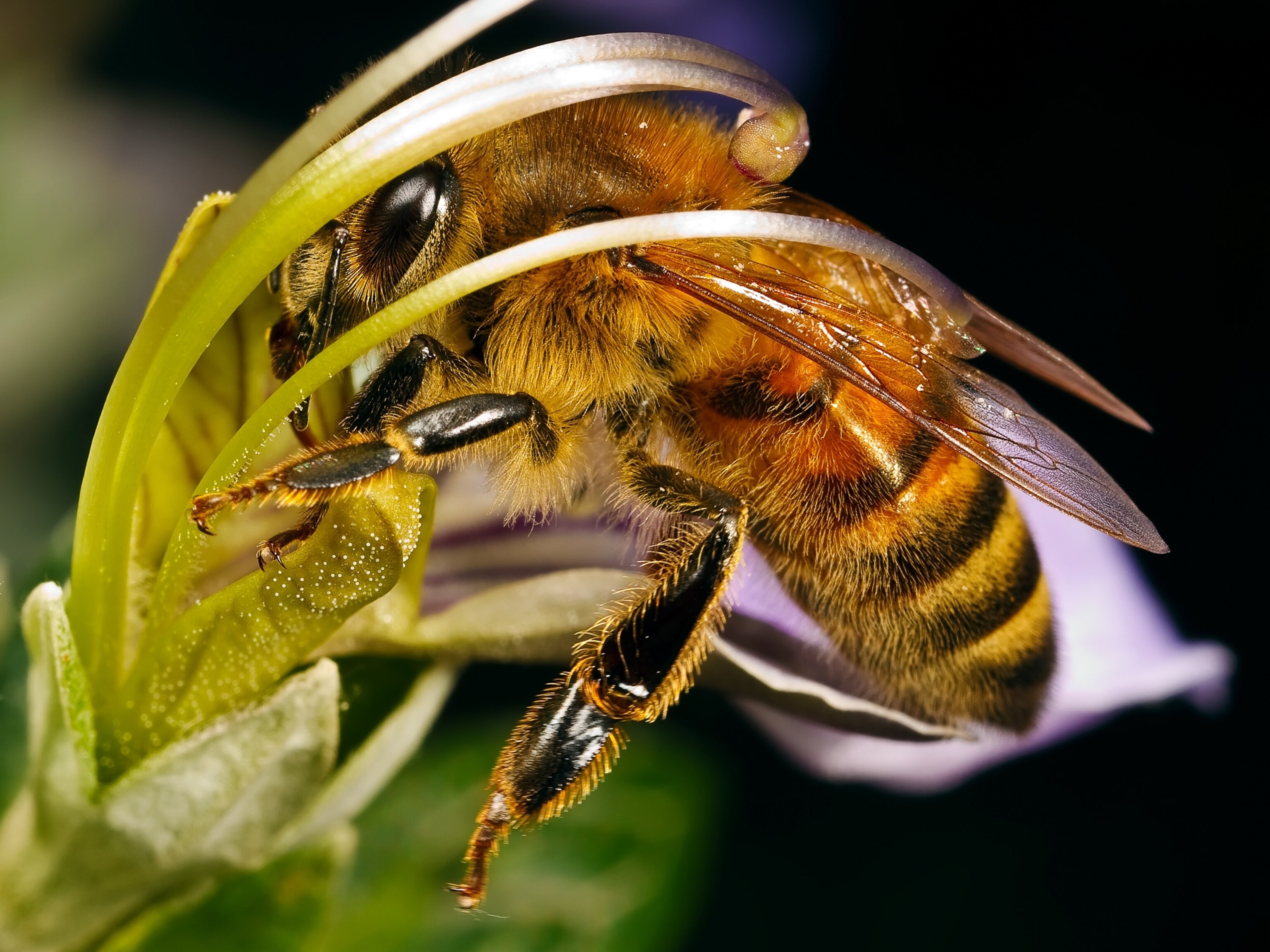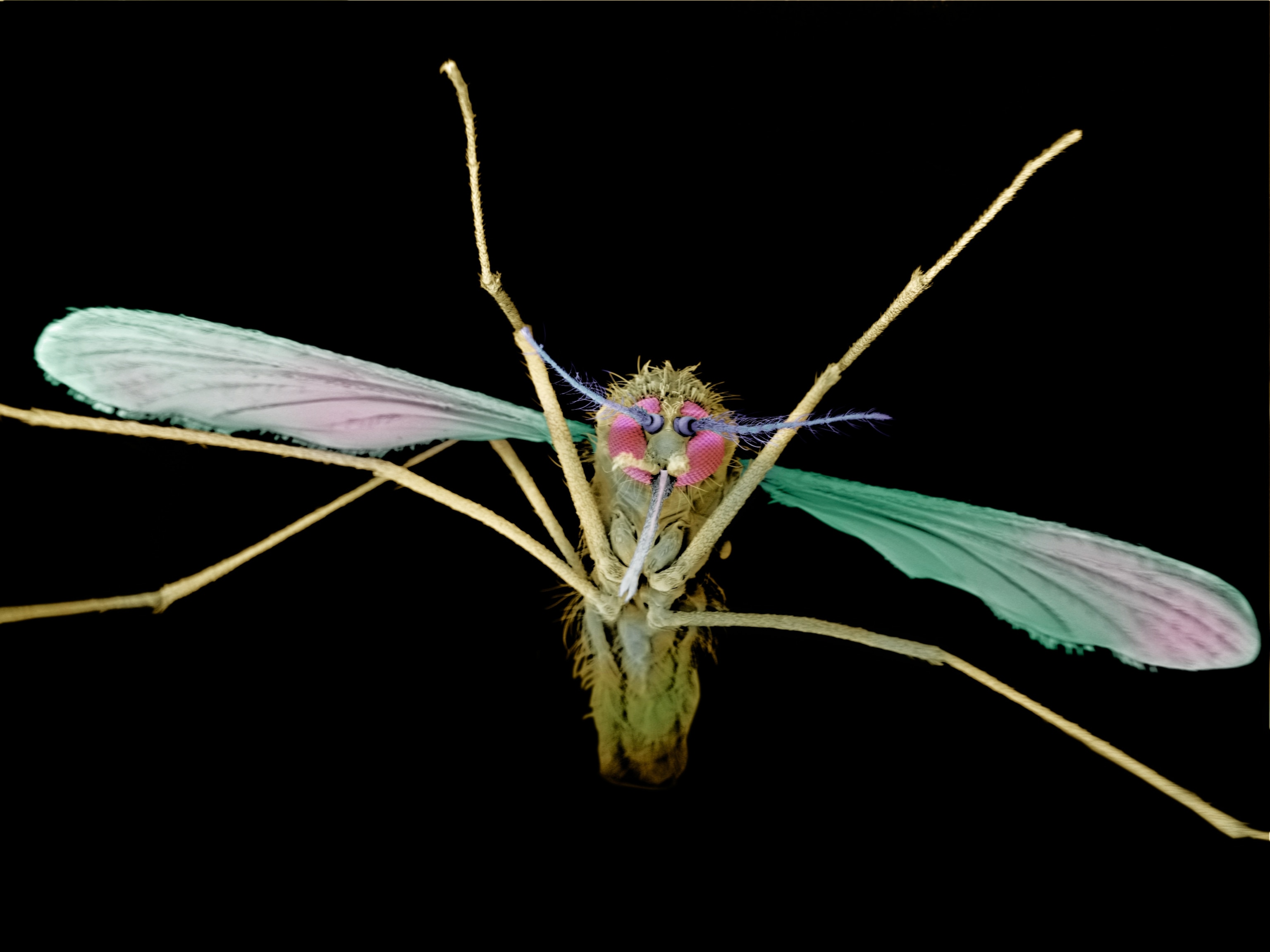
Are Honeybees Losing Their Way?
A combo of pesticides takes a toll on their memory and communication skills
A single
visits hundreds, sometimes thousands, of flowers a day in search of nectar and pollen. Then it must find its way back to the hive, navigating distances up to five miles (eight kilometers), and perform a "waggle dance" to tell the other bees where the flowers are.
A new study shows that long-term exposure to a combination of certain pesticides might impair the bee's ability to carry out its pollen mission.
"Any impairment in their ability to do this could have a strong effect on their survival," said Geraldine Wright, a neuroscientist at Newcastle University in England and co-author of a new study posted online February 7, 2013, in the Journal of Experimental Biology.
Wright's study adds to the growing body of research that shows that the honeybee's ability to thrive is being threatened. Scientists are still researching how pesticides may be contributing to colony collapse disorder (CCD), a rapid die-off seen in millions of honeybees throughout the world since 2006.
"Pesticides are very likely to be involved in CCD and also in the loss of other types of pollinators," Wright said. (See the diversity of pollinating creatures in a photo gallery from National Geographic magazine.)
Bees depend on what's called "scent memory" to find flowers teeming with nectar and pollen. Their ability to rapidly learn, remember, and communicate with each other has made them highly efficient foragers, using the waggle dance to educate others about the site of the food source.
Watch as National Geographic explains the waggle dance.
Their pollination of plants is responsible for the existence of nearly a third of the food we eat and has a similar impact on wildlife food supplies.
Previous studies have shown certain types of pesticides affect a bee's learning and memory. Wright's team wanted to investigate if the combination of different pesticides had an even greater effect on the learning and memory of honeybees.
"Honeybees learn to associate floral colors and scents with the quality of food rewards," Wright explained. "The pesticides affect the neurons involved in these behaviors. These [affected] bees are likely to have difficulty communicating with other members of the colony."
The experiment used a classic procedure with a daunting name: olfactory conditioning of the proboscis extension reflex. In layman's terms, the bee sticks out its tongue in response to odor and food rewards.
For the experiment, bees were collected from the colony entrance, placed in glass vials, and then transferred into plastic sandwich boxes. For three days the bees were fed a sucrose solution laced with sublethal doses of pesticides. The team measured short-term and long-term memory at 10-minute and 24-hour intervals respectively. (Watch of a video of a similar type of bee experiment.)
This study shows that when pesticides are combined, the impact on bees is far worse than exposure to just one pesticide. "This is particularly important because one of the pesticides we used, coumaphos, is a 'medicine' used to treat Varroa mites [pests that have been implicated in CCD] in honeybee colonies throughout the world," Wright said.
The pesticide, in addition to killing the mites, might also be making honeybees more vulnerable to poisoning and effects from other pesticides.
Stephen Buchmann of the Pollinator Partnership, who was not part of Wright's study, underscored how critical pollinators are for the world. "The main threat to pollinators is habitat destruction and alteration. We're rapidly losing pollinator habitats, natural areas, and food-producing agricultural lands that are essential for our survival and well being. Along with habitat destruction, insecticides weaken pollinators and other beneficial insects."




